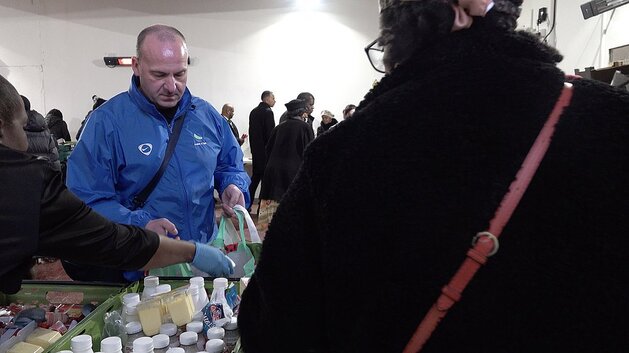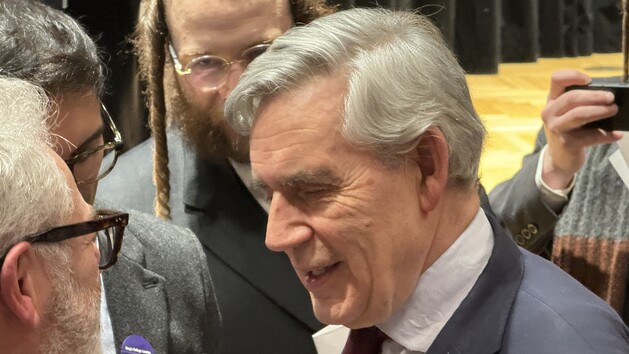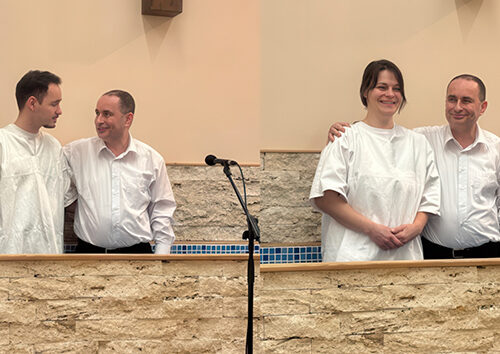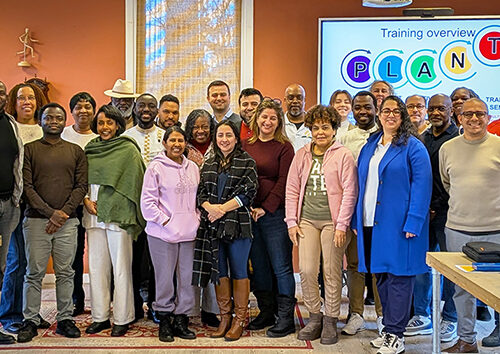26 June| St. Albans, UK [David Neal]
4 July 2024 is UK general election day. In the campaign leading up to polling day, the message of party leaders has been about how to manage the nation’s multiple challenges and crises in this era of permacrisis. Gone are the days when UK and European politicians offered a bright, hope-filled vision of the future. In contrast, some promote a populist fear-based agenda that blames ‘others’ for our problems.
Free from the constraint of partisan politics, former UK Prime Minister Gordon Brown rises above the fear-filled politics of our age, with a big idea to end UK child poverty, a vision deeply rooted in his faith. The UK is facing the crisis of child poverty – he describes it as a pandemic. In a remarkable paper called “Partnership to End Poverty,” Brown calls for a new ‘coalition of compassion’ comprising government, business, and charity working together to eliminate child poverty. This is necessary because there is “a generation of children who have never known what economic security means” and who are “the biggest losers.”
The Rise of Foodbanks
With 7.2 million people currently suffering from food insecurity, the need for UK food banks has risen dramatically. (1) From only 35 food banks nationwide in 2010, the number increased to 650 in 2013, 1,300 in 2019, and an alarming 2,800 in 2024. (2)

Poverty-Stricken Children
Of those 7.2 million, Brown is concerned that “the far more severe suffering of 3 million children at the sharpest end of our poverty emergency is unseen and unreported, often hidden from neighbours and friends. These millions,” continued Brown, “start their day going to school hungry, regularly miss out on meals, and teachers report they are exhausted and unable to study due to lack of nutrition.” (3)
In addition, Brown shares stories of poverty-stricken children living in Leeds, Liverpool, Swansea, and Wigan. A child and her mother share the only pair of shoes the family owns, resulting in the child missing school on certain days. Only one of two brothers can attend football training weekly because the family can only afford one pair of boots. A girl with no sports shoes is bullied by her classmates. A teenage girl walks alone in the city on a Saturday afternoon in her school uniform, which is the only clothing she has, handed down from her teacher.
Squalor and Its Effects
Brown describes the situation as squalor. “Worsening poverty is causing not only hunger and ill health…” but “Mothers find that after skimping and scraping to feed hungry bodies, they cannot afford to buy basic toiletries to keep austerity’s children clean.” He also notes that poorer children are “smaller in size than the generation before them.”

From Foodbank to Multi-bank
Is there a solution to the problem? “Yes,” says Brown, because of “hope”—which is “more than optimism. It is not an expectation but an intention to do things. It is a feeling that it can and will be done.”
At the macroeconomic level, Brown’s ‘coalition of compassion’ plan sees the banking sector holding “a fraction of their deposits in the Bank of England, recovering £2 billion in interest payments made to banks.”
At the local level, he calls for the various food banks—as well as clothes banks, toiletries banks, and bedding and furniture banks—to evolve into a “multi-bank,” which takes a holistic view of a family’s needs and provides all these goods through social workers, teachers, and health visitors from one all-purpose warehouse.

From Theological Zeal to a Coalition of Compassion
In a lecture delivered earlier this year at King’s College London titled “Faith, Hope and Charity”, Brown’s upbringing is the reason for his hope. Born in Kirkaldy, Scotland, his father was a Church of Scotland minister and the author of several theological works – who could have easily entered academia. Instead, he remained firmly in the Manse (4), frequently receiving people in dire need requesting money. Brown’s take on his father’s motivation for ministry is clear. It was “not theological zeal—but compassion.”
“You Can Leave Your Mark on the World for Good or for Ill”
As Prime Minister from 2007 to 2010, and Chancellor from 1997 to 2006, Brown experienced political leadership at its highest level. While his politics align with Western liberal democratic ideals, he rejects a “sterile version of liberal secularism,” where faith in the public square is ignored. He is not only interested in the “how” but also the “why”—the ethical basis of decision-making in public life, a value shaped by his upbringing, but through the most painful experience any parent can ever bear.
No Abstract Idealism
At the end of 2001, Gordon and Sarah Brown experienced the premature birth of their first child, Jennifer, who lived for just 10 days, “too frail to survive.” The night before she died, he requested his minister to baptise his daughter and vow as parents to “bring her up in the nurture and the admonition of the Lord.” “The baptism was not, for us, just a comfort and not just a ritual: It was a recognition that every single life, even the shortest life, has a purpose and that every single person is irreplaceable.”
The Browns were not the first, nor are they the last to experience such pain. In his lecture, Brown reminded his audience that “Children do not start wars or plan acts of terrorism, but too often they are their greatest victims, as the conflict engulfing Israel and Gaza so painfully demonstrates.”
Character Matters
One day in Peter’s house in Capernaum, a long time ago, Jesus took a child and placed him in the middle of the disciples, who were in the midst of an argument. Their concern was, “Who is the greatest?” Taking the child in his arms, he said to them, “Anyone who welcomes a little child like this on my behalf welcomes me, and anyone who welcomes me welcomes not only me but also my Father who sent me” (Mark 9:36-37 TLV).
Upon reflection, Brown might admit he made some poor political and economic decisions. He might also admit that he personally struggled while being Prime Minister. Yet a look below the surface reveals an individual deeply rooted and committed to living the compassion of Christ. (5)
An Adventure in Missing the Point
“When our country returns to ‘Christian values’ we will be great again,” runs the narrative of the angry Christian nationalist worldview sweeping across the US and Europe. But like a sheep in wolf’s clothing, its message is anti-biblical, anti-Christian, anti-gospel, rooted in the fear of ‘people not like us.’ You name the difference—and they are the problem! It is the same narrative peddled in 1930s Europe with devastating consequences. Frequently led by leaders whose words and deeds are far removed from anything resembling what it means to be a disciple of Christ, this movement claims to offer renewed hope in old Christian values and seeks to restore faith in place of secularism.
And yet, it is a political/philosophical worldview missing one critical link. How do they miss it, when Paul is so clear about it in 1 Corinthians 13:13? “So now faith, hope, and love abide, these three; but the greatest of these is love.”
In stark contrast to Brown’s constructive and hope-filled call for a “coalition of compassion,” so-called Christian nationalist movements peddle a “coalition of fear.”
Who would you rather endorse? A coalition of compassion or a coalition of fear?
[Photos: BUC News, David Neal and Shutterstock. Featured image: Shutterstock]
Notes:
Inspiration for this article comes from Brown’s lecture, ‘Faith, Hope, and Charity’, delivered at King’s College, London on 27 March 2024, and background reading on his early life.
1. The Guardian, How Britain Became a Food Bank Nation, Gordon Brown, 2024.
2. ibid.
3. The Tottenham Lighthouse church is just one of many Seventh-day Adventist churches in the UK operating foodbanks.
4. The name given for a house provided to support to a clergyman in his ministry, particularly in Scotland.
5. For an in depth understanding of Brown’s belief in bringing faith into the the public square, as the balance between ‘theocracy’ and ‘liberal secularism’ take a read of his 2011 Faith in Politics? lecture.



